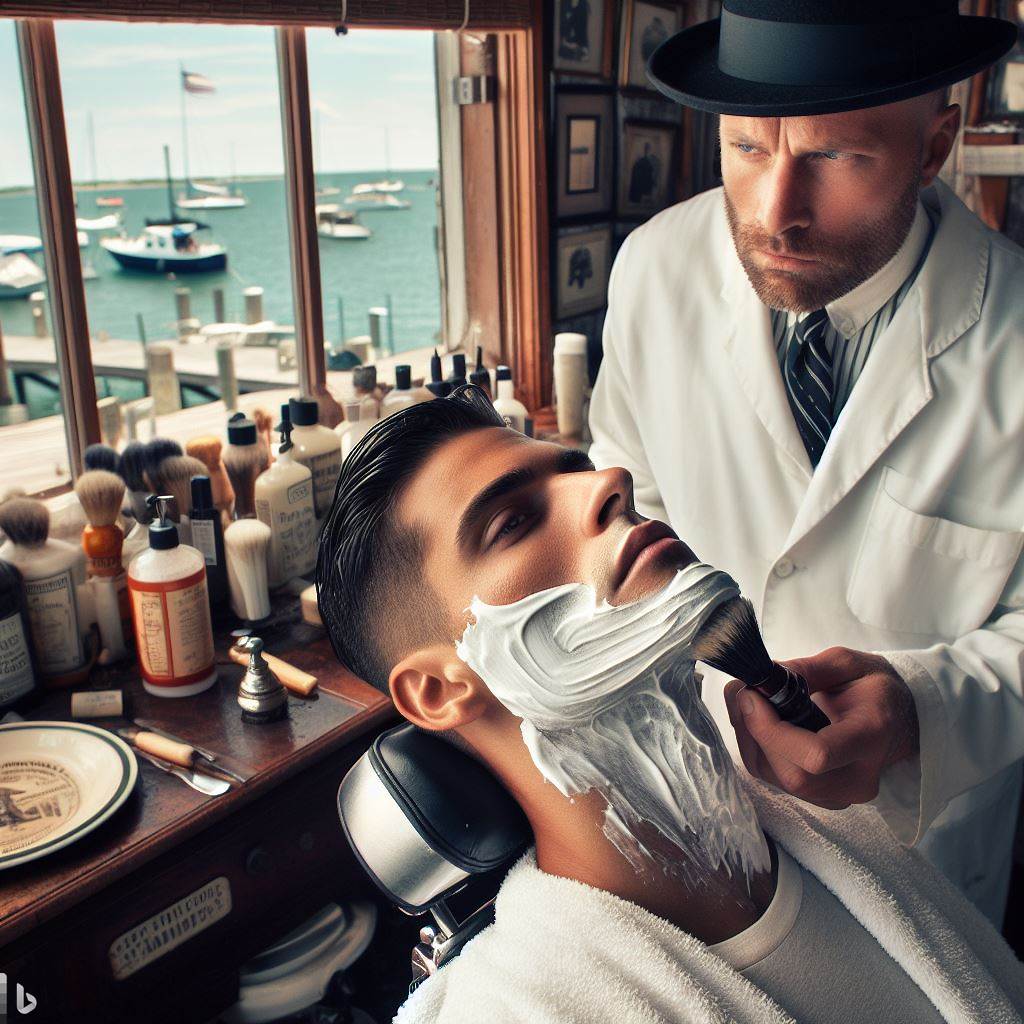Shaving History
Shaving was thought to begin with primitive men who believed that bad spirits entered individuals through the hair and inhabited the body. From that notion the only way to drive the evil spirits out was by cutting one’s hair.
Prehistoric cave walls show images of people shaving with clam shells, flint knives and shark teeth. Circular gold or copper razors can also be found as far back as the 4th BC in some Egyptian tombs. The Egyptians were the first known culture to cultivate beauty in an extravagant manner. In an attempt to better their appearance and convey a more civilized image, Egyptian men began removing all the hair from their heads, faces and bodies. Wealthy Egyptian men often hired dedicated barbers to live with them in order to maintain their appearance and high standard. Less affluent Egyptians would go to local barbers to have their faces and heads shaved daily. In this time period “not shaving at all” became a mark of low social status.
Being clean shaven was also a strategy used during War out on the battlefield. The Ancient Persians defeated Alexander the Great’s men because the Macedonians at the time had beards, which the Persians could grab and pull their enemies to the ground before spearing them to death. After such attacks, Alexander the Great ordered his troops to be cleaned shaven so their enemies could not use the same tactics again. This new appearance and tactic gradually found its way into being adopted into common Greek culture.
The Romans too had barbers tracing back to 296 B.C, when Ticinius Mena a renowned Senator came back to Rome from Sicily, bringing with him the fine taste and appreciation for the art of shaving. Roman barber shops soon began to flourish and prosper among the chatter of men, who attempted to set themselves apart from slaves by sporting a clean complexion with the absence of beards. In their culture, a young Romans' first shave was celebrated as an important milestone in life and was ritualized in an elaborate religious ceremony where family and friends would come by and watch the cherished event.

The popularity, rise and novelty of being well groomed was really brought into the spotlight by an English Gentlemen named George Bryan “Beau” Brummell (1778 – 1840). Beau was iconic and known for his impeccable style and laid the foundations for bespoken suits and fine grooming. Legend has it he used champagne to polish his boots. Brummell was a trend setter and major influencer among his peers, bringing back a clean-shaven look as he was strict in his hygiene and appearance. From these strong attributes he inspired a culture and is credited with starting the Era of Dandyism.
Shaving in London then became a pastime and barbers became highly praised artisans. Story has it that barbers during Dandyism, had to start working 90-hour weeks just to keep up with the surge of clientele, who became hell-bent on taking a few hours each week for their shaves. Brummel's legend and statue still to this day can be found on Jermyn Street in the St. James district in London.
Shaving founds its way into North America and barbershops opened among the many immigrant boroughs of New Amsterdam/NYC as well as other grooming establishments opening in new settlements along the coast where ports were built for whaling and fishing. As years moved on the railroad was built to expand to the West, as a result many stations and towns were built along the rail network as supply points. From this, saloons and barbershops were soon added to these adjacent towns as staple businesses.
From some of the examples mentioned herein, it is evident that many eras throughout history had men of different social classes and backgrounds taking their personal grooming serious and fondly sporting a clean-shaven mug. Luther Lather is the bridge between old school shaving and new school.
We hope you take the time to enjoy and embrace this same ritual. May you pay homage and belong to the famous gentlemen before you whom shaved this way. This is your era now. This is the Celebration of Manhood. This is the Luther Lather experience.


